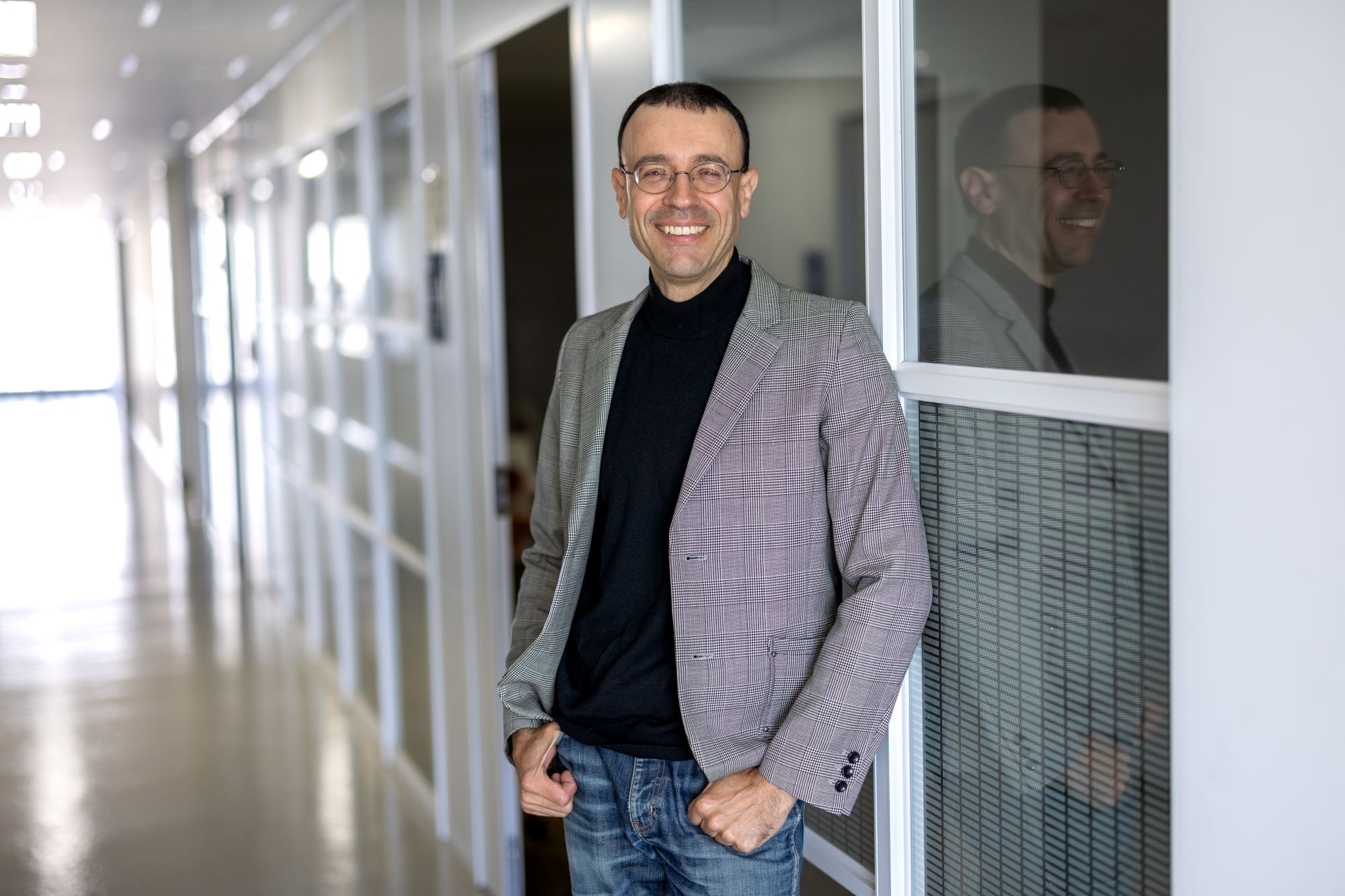
Dr. Luca Baiotti, Associate Professor, Graduate School of Science
"Drifting on a sea of stars: Understanding gravitational waves and the fabric of reality"
Born and raised in Italy, Dr. Luca Baiotti is an astrophysicist who obtained his Ph.D. in astrophysics at SISSA (International School of Advanced Studies) in 2004, after which he did his postdoctoral training at the Max-Plank-Institut für Gravitationsphysik, Albert-Einstein-Institut in Potsdam (Germany) for three years. During this period, he visited Japan to attend a conference on general relativity, which made him want to work there. In November 2007, he received a JSPS fellowship to work at the University of Tokyo for about a year, followed by another year at Kyoto University. He joined Osaka University in January 2010 to teach physics at the International Physics Course (IPC), a Global 30 program, and conduct research at the Graduate School of Science. He went on to join the International College in April 2020 to teach in the International Undergraduate Program in Science (IUPS).

By training, Dr. Baiotti is a theoretical physicist whose research delves into the underpinnings of gravitational wave generation. Gravitational waves are ripples in the fabric of spacetime caused by the acceleration of objects. They are very weak: it is possible to observe only gravitational waves emitted from the densest objects in the universe, such as merging black holes or neutron stars (the latter being his focus of research). The detection of gravitational waves has provided experimental validation for the predictions made by Einstein over a century ago and has opened up an entirely new observational window. Dr. Baiotti is particularly interested in understanding the intricate dynamics of neutron stars and how they may give us hints on what type of matter these stars are made of (despite the name, they are not made only of neutrons). His work involves solving Einstein’s equations on supercomputers and comparing the results with observations. By refining theoretical models, scientists can better interpret the raw data from gravitational wave detectors, such as LIGO in the US, Virgo in Italy, and KAGRA in Japan. This, in turn, enhances their ability to extract meaningful information about the sources of gravitational waves. Additionally, a deeper understanding of the theoretical aspects can open new avenues for technological advancements, perhaps leading to innovations we haven’t yet imagined.

Dr. Baiotti lauds Osaka University’s efforts concerning internationalization and diversity in the past decade. However, he feels that the University should invest in more educationally advanced methods for further developing the students’ fluency in English, so that they may be more willing to interact with international students and staff. He also pointed out the lack of foreign full professors in the Graduate School of Science and female full professors in the Department of Physics and the Department of Earth and Space Science, suggesting that there is still room for improvement in the internationalization and gender diversification of faculty members. Dr. Baiotti thinks that scientists who are not only eager to develop their careers but also interested in learning new cultures and languages would enjoy working in Japan.
Text: Clement Angkawidjaja/Edit: Christopher Bubb